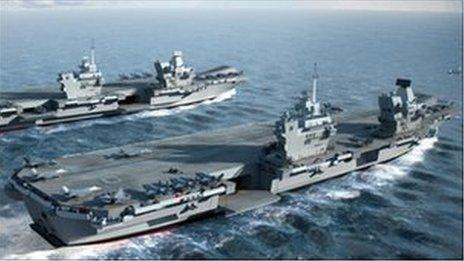Philip Hammond: Criticism of defence cuts 'nonsense'
- Published
- comments
Defence Secretary Philip Hammond says the government has made 'tough decisions' on defence cuts but the UK is still a 'credible and capable' military force.
Defence Secretary Philip Hammond has dismissed fresh criticism of defence cuts as "nonsense".
General Sir Richard Shirreff, the outgoing Nato deputy supreme commander, told the Sunday Times, external cuts to the British military had "hollowed out" the Royal Navy.
But Mr Hammond told the BBC: "We are a capable and credible ally."
Shadow defence secretary Vernon Coaker said "serious questions" remain about the planned cuts.
Sir Richard said the Royal Navy had been cut "to the bone" and left unable to take part in Nato maritime operations.
Speaking on The Andrew Marr Show, Mr Hammond said the criticism was unfounded, however.
"Nobody should be in any doubt of our resolve to live up to our commitments under the Nato treaty," he added.
'Risk'
The Army is undergoing a 20% reduction in regular troop numbers, from 102,000 in 2010 to 82,000 in 2020. This is to be accompanied by a rise in the number of reservists, from 24,000 to 30,000.
Over the same period, the Royal Navy and the RAF are each preparing to lose 5,000 regulars and gain 500 reservists.
Sir Richard's comments follow recent warnings about the impact of the cuts from former US Defence Secretary Robert Gates and former head of the Army Lord Dannatt.
Sir Richard warned that cutting the number of full-time troops and recruiting more reservists was "one hell of a risk".
"The point at which a risk becomes a gamble is a subjective view," he said. "I think the jury is out still."
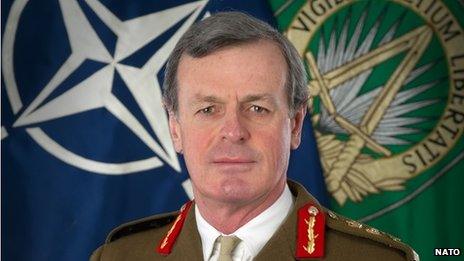
General Sir Richard Shirreff stepped down from his post last week
In light of the situation in Crimea, it was necessary for Britain to "prioritise defence", he said, telling the newspaper: "A hollowed-out navy means you can't project power."
Sir Richard, who stepped down from his post last week, added it was "very noticeable" that the Royal Navy was "never participating in Nato maritime operations".
But Mr Hammond said of the criticism: "Of course I'm listening and much of what I'm hearing is nonsense.
"We still have the fourth-largest defence budget in the world.
"I was in the Pentagon just this week past. I heard my US counterpart talk about Britain as a credible, capable and reliable ally and that's what we intend to remain."
'Effective'
Mr Hammond stressed that savings had to be made.
"Of course we've had to take some very tough decisions," he said. "But we are working with the military chiefs to make sure that we prioritise our very large defence budget, invest it in the areas that are going to matter in the future.
"I recognise that sometimes that has meant we've had to take decisions that have upset some people about legacy capabilities but we're looking to the future, not the past."
Mr Hammond said the Navy did take part in Nato exercises and insisted it was also "busy around the world" on other operations.
These included taking part in counter-piracy missions, tackling drug traffickers and also helping in the search for the missing Malaysia Airlines plane.
"We'd like to have more assets but we are very effective at using the assets we've got to deliver the effect we need to do," he added.
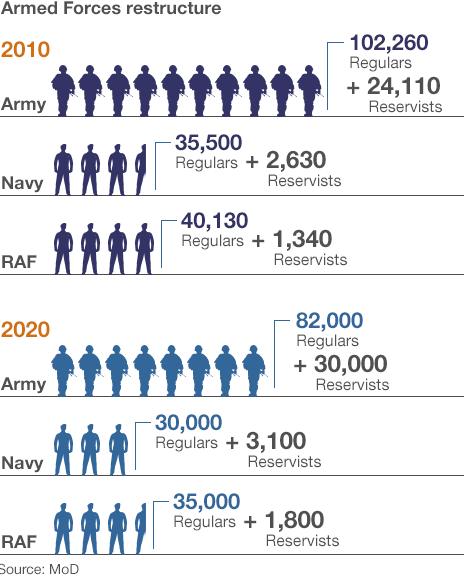
Mr Coaker said: "While I agree with the rationale behind the Army 2020 proposals, serious questions remain about their deliverability.
"General Shirreff's comments signal yet another senior military voice adding to the chorus of concern over the government's defence reforms.
"The defence secretary has been too quick to dismiss these concerns and those of our allies. He has pursued his policy with little regard for the implications of its practical application."
In a statement, the Ministry of Defence said: "With a restructured, more flexible and agile army and with £160 billion planned on new equipment over the next decade, we will ensure our Armed Forces retain their formidable range of cutting-edge capabilities and ability to project power across the globe."
- Published30 March 2014
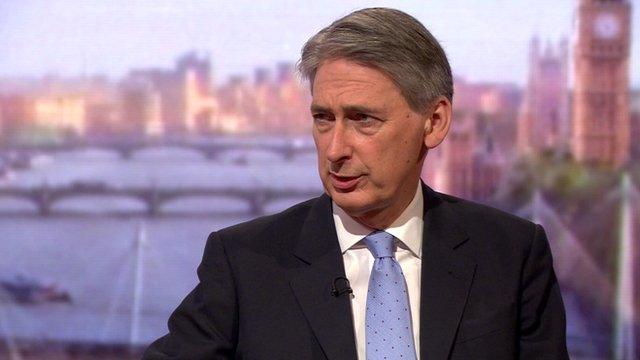
- Published27 March 2014
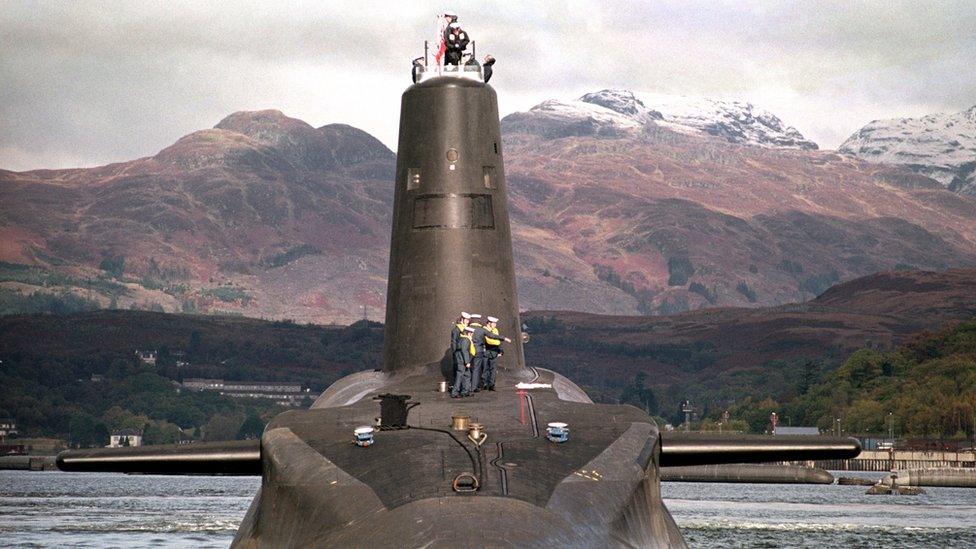
- Published24 March 2014
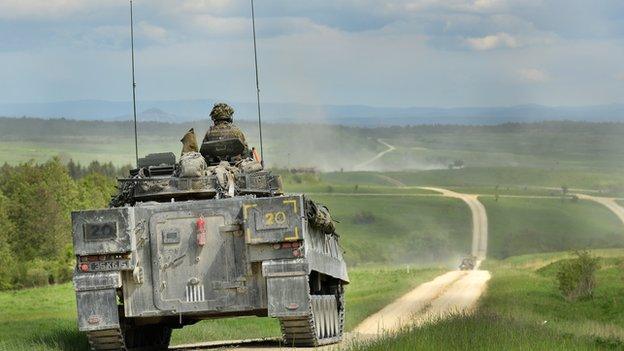
- Published6 March 2014
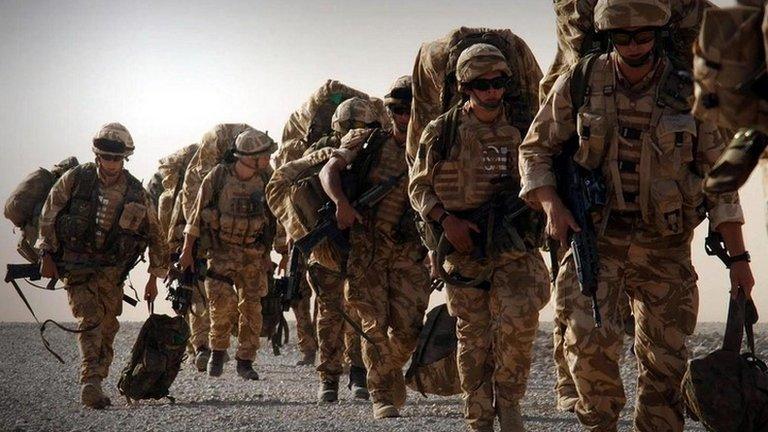
- Published24 February 2014
